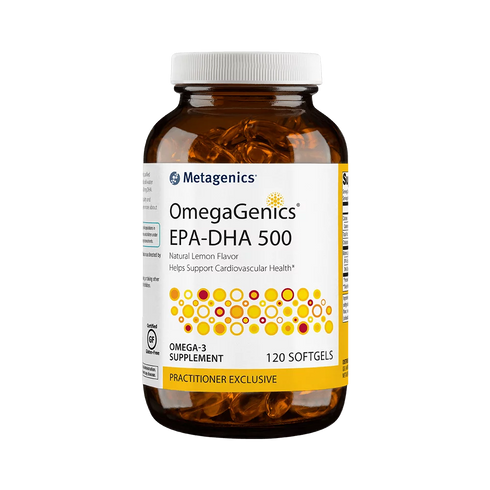Autism
Functional treatment helps identify and resolve neuroinflammation and restore balanced neural activity leading to greater quality of life for autism patients & their families.

An Integrative Approach to Autism
Since 2000, autism and autism spectrum disorders (ASDs) have increased almost exponentially, and now impact about 1 in every 44 children. Most diagnosis are made in childhood, but a number of adults also seek diagnosis as awareness and accessibility to treatment increase. Autism, and disorders like it, are complex conditions involving multifaceted genetic and environmental factors.
Because of this complexity, our team of highly qualified functional physicians dive deep into each patient’s medical history to identify and treat the root cause of imbalances—instead of masking symptoms with medications.
The functional medicine approach is well-suited to address autism symptoms. Because each child is unique, and autism disorders occur on a spectrum, restoring balance to multiple systems is key.
Genetics and Environment
Most conventional sources attribute genetics to the dramatic increase in autism spectrum disorders in the past decades. Others go as far to say that a child’s diet & environment have no place in effectively managing autism symptoms.
However, the most current research supports two important factors that can help parents and functional practitioners:
-
Genetic changes occur too slowly to be the sole factor responsible for ASDs.
-
Some environmental and lifestyle factors do contribute to an increase in symptoms associated with autism.
Recent studies suggest that autism is likely an autoimmune reaction within the brain. Similar to other autoimmune disorders, this suggests that microbiome changes and neuro-inflammation could play a role in activating a genetic predisposition to an immune response against the brain.
The Gut-Brain Connection & Autism
There is often a strong correlation between autism and gastrointestinal symptoms. Many children on the autism spectrum have symptoms of bloating, diarrhea, constipation, and abdominal pain.
For this reason, evaluation of the microbiome and overall diet are key to a functional approach to treatment.
Learn about becoming a new patient
Common Signs & Symptoms of Autism in Children Include:
-
Avoiding eye contact
-
Lack of facial expressions (happy, sad, angry, and surprised) by 9 months of age
-
Does not notice when others are hurt or upset by 24 months of age
-
Using few or no gestures by 12 months of age (i.e. waving, pointing)
-
Focusing on parts of objects (for example, wheels)
-
Flaps arms or hands, or spins self in circles (sometimes called ‘stimming’)
-
Delayed language and/or learning skills
-
Unusual reactions to the way things sound, smell, taste, look, or feel
Ready to do medicine differently?
Functional Medicine Testing & Treatment for Autism & Autism Spectrum Disorders
Though there is no traditional “cure” for autism, a functional medicine approach is an effective way to manage autism symptoms and improve quality of life for patients and their families. As part of a comprehensive protocol, your functional medicine practitioner may recommend:
Nutrition
-
Trial gluten and dairy-free diet
-
Dietary supplement recommendations such as magnesium, probiotics, omega-3s, zinc, and vitamin D
Testing
-
Heavy metal toxicity and detoxification function
-
Gut health & digestive function analysis
-
Antibody testing
-
Nutrient status
-
MTHFR genetic variations
-
Glutathione status
Complementary Therapies
-
Craniosacral therapy
Learn more about the hol+ approach
May ease gastrointestinal symptoms and potentially influence mood and behavior.
 Add to Cart
See All
Add to Cart
See All
May support antioxidant processes via glutathione production and has shown promise in reducing irritability and repetitive behaviors in some Autism populations.
 Add to Cart
See All
Add to Cart
See All
May support cognitive function and behavior, particularly when dietary intake is limited
 Add to Cart
See All
Add to Cart
See All
Supporting Services for Autism
Brain Boost is a holistic program designed to enhance all aspects of your child’s emotional intelligence and cognitive performance. This comprehensive system provides your child with the tools to thrive, regardless of whether they struggle academically or excel in school but face challenges in interpersonal situations.
It equips your child with the tools they need to thrive, whether they lag behind academically or excel in school but struggle in interpersonal situations. Our approach includes multi-collagen protein to support brain health and function.
These Aspects Include:
- Cognitive and Emotional Development: Developing your child’s thinking skills and emotional intelligence to enhance their overall learning capacity and interpersonal relationships.
- Brain Chemistry: Understanding and optimizing the balance of neurotransmitters and hormones that influence mood, attention, and behavior.
- Nutrient Imbalances and Deficiencies: Identifying and addressing gaps in your child’s diet that may affect cognitive function and overall health.
- Toxicity: Evaluating and reducing exposure to environmental toxins that can impair brain development and function.
- Gut Function: Exploring the gut-brain connection and addressing any digestive issues that might be impacting cognitive performance.
- Multi Collagen Protein for Brain Boost: Utilizing the benefits of multi collagen protein to support brain structure, function, and overall health.
Want to learn more? Schedule a FREE 15 minute consultation
Schedule Your Consultation





